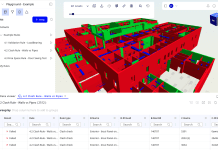Construction projects invariably do not remain the same as originally set out. A construction agreement is usually legally finite and unless there is a very clear deed signed to discharge or alter it, the contractual rights survive
It is generally held by the Courts that a construction agreement will be interpreted in laissez-faire or objective way so if one party denies an obligation which is clearly written in, there is no escape.
The Court will interpret the contract, subject to doctrines such as consideration, illegality, frustration, duress and overriding statutes such as the Unfair Contract Terms Act 1977, the Housing and Grants, Construction and Regeneration Act 1996 (“HGCR Act”) as examples, which may make the contract or terms within it void. A good example is where a “pay when paid” clause is in the contract, this is voided by section 113 of the HGCR Act 1996.
How to solve a contract dispute when problems arise
There can be problems with construction contracts being void and construction agreements can be invalid, thus careful drafting and checking is recommended. Problems then occur during the contract works or after the works are completed as changes take place and the final account is determined, leading to disputes.
A common problem is where one party will assert that certain variation items are agreed and cannot be opened again and an Adjudicator must decide. As an example, during the contract, in the interim, the paying party pays a lump sum of money of say £50,000 for wasted concrete.
This is done on account even though the net measurement has been agreed separately, but the payer realises that the job needs to be completed and the sum will probably be due one way or another in the final analysis.
To avoid upset the payer consents to and pays the sum of money, worse still the payment schedule has the word “agreed” next to the sum. At final account stage, the parties fall out and the sum is withdrawn; it is a considerable amount, but on the true interpretation of measurement under the Contract it is simply not due, there is no entitlement to it. But is it agreed so due under that heading?
What if there are variations in a construction agreement?
The answer may be in the contract; most standard subcontracts at least have a variation mechanism that defines how variations to the contract price are dealt with. If a pre-pricing mechanism exists and is clearly adopted there will be little chance that the paying party will be able to later reduce the agreed sum.
If no agreement is reached the variation is assessed based on a fair valuation. It is also generally accepted with standard contracts that there is an interim payment procedure and a final account procedure, with the latter often incorporating a term that states that “full and final settlement” will only be reached when certain conditions have been met or say a deed is signed with wording to that effect.
In such a case, the objective view normally taken by the Courts is that there can be no final agreement on any part of the account until that final deed is signed.
Why properly drafted contracts are important
So, subject to doctrines and statues, parties are able to engage in the “freedom of contract” without court interference, but what happens if there is no variation clause, interim payment or final account procedure that might define how “agreement” can be reached? Does the interim “agreement” for the extra concrete become a legally binding agreement? The answer is, possibly.
There is a risk that if a binding agreement exists or even a separate contract was formed, it is open to interpretation by a Court or Adjudicator. Implied terms could be argued on the custom but, at the end of the day, risk will be unnecessarily introduced through lack of certainty.
In conclusion, the importance of properly drafted contracts with a clear agreement procedure is essential to reduce the risk. Training should also be given to enable Quantity Surveyors to use words such as “agreed” appropriately in written exchanges. In the case of the Client’s Quantity Surveyor it is entirely possible that he may not have the power to agree anything on behalf of the Client, if the Client does not expressly provide them with that power.
For advice on a construction contract, please use Arbicon’s contact form or call the offices below:
01733 233737 Peterborough
0207 406 1494 London
0121 262 4086 Birmingham













